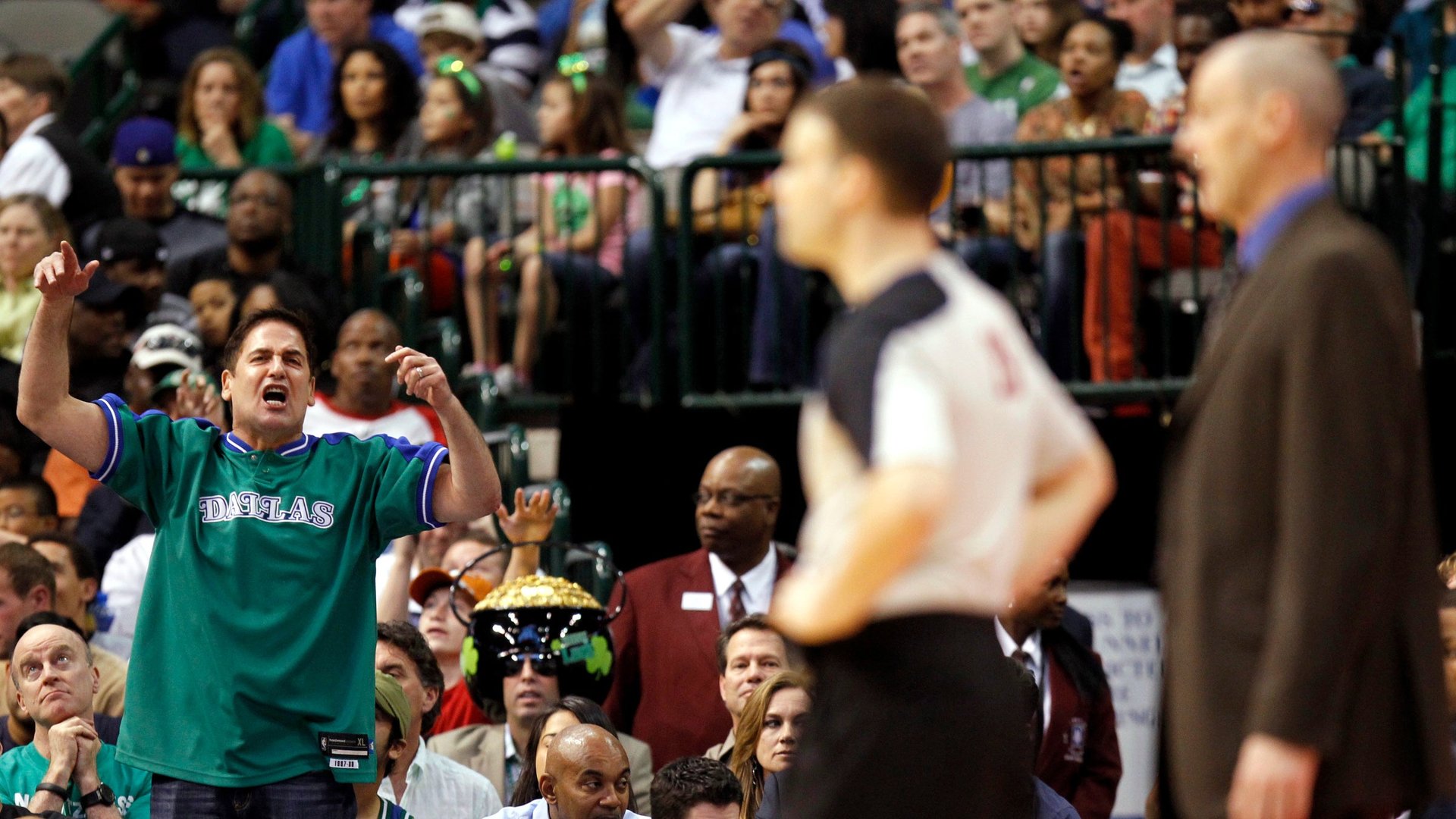Mark Cuban can work basketball referees, but can he work the SEC?
Mark Cuban seems like he’s got it all figured out: He made millions during the tech bubble of the 1990s, sold at the top of the market, and bought an American professional basketball team, the Dallas Mavericks, where his criticism of NBA officials has earned the outspoken tycoon $1.8 million in league fines.


Mark Cuban seems like he’s got it all figured out: He made millions during the tech bubble of the 1990s, sold at the top of the market, and bought an American professional basketball team, the Dallas Mavericks, where his criticism of NBA officials has earned the outspoken tycoon $1.8 million in league fines.
But now Cuban is dealing with refs in a bigger league: The US Securities and Exchange Commission is taking him to trial for insider trading on what even the presiding judge says is a close call. And with Cuban expected to testify not once but twice, the case may come down to whether the charismatic Cuban, who frequently appears on television as the host of the investing reality show Shark Tank, can convince the jury of his innocence.
The case revolves around Cuban’s investment in mamma.com, now Copernic, a company that develops search engine technology. After being informed of the company’s plan to issue new stock in 2004, thus diluting his stake, Cuban sold 600,000 shares, avoiding an estimated $750,000 loss he would have incurred had he held the stock until after the company publicly announced the offering and saw its stock price fall. It’s a significant gain, but fairly small compared to Cuban’s approximate $2.5 billion net worth.
Cuban maintains that his confidentiality agreement with the company didn’t prevent him from acting on this information, since it was widely distributed to potential investors. He also contends the information wasn’t material because the change in price wasn’t “statistically significant.”
The SEC argues that the information is material, as shown by the change in stock price. The agency also cites Cuban’s angry exchange with the company’s CEO, Guy Fauré, who recalls Cuban saying “now I’m screwed, I can’t sell” upon being informed of the forthcoming offer, which suggests Cuban knew ditching the stock wouldn’t be legal. The case comes down to something of a he-said-she-said between Cuban and Fauré, and between the SEC’s experts and those hired by Cuban’s lawyers.
Just to add to the fun, Cuban contends the investigation reflects the SEC’s personal bias against him, though an internal investigation into those allegations cleared the agency of any wrong-doing. The case, filed in 2008, was originally thrown out by a lower-level court before being set for trial by an appeals court.